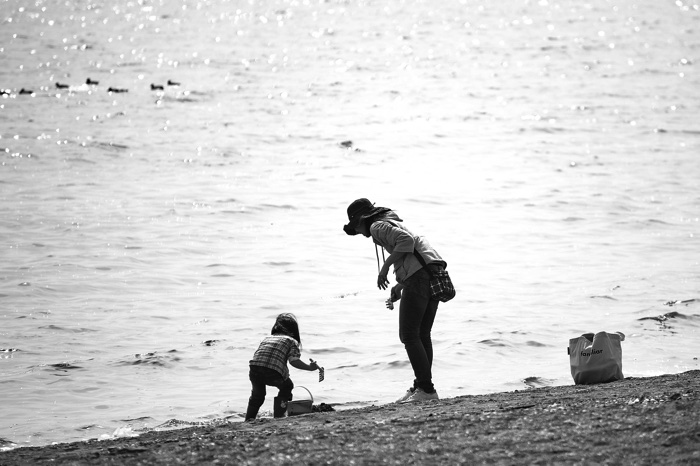3月11日
2011年3月11日、あの日、私は会社を休んで母を新浦安の順天堂大学に連れていった。家に戻って直ぐのことだった。経験したことのない激しい揺れに、ついにこの日が来てしまった、関東が震源の大地震だと思った。

2011年5月8日撮影 葛西臨海公園 『それでも海は海』
3月11日の北海道新聞のコラム『卓上四季』のマクラの部分を翻訳してみました。それでも人は海をいとしみ、海と生きていかなければなりません。
北海道新聞『卓上四季』2017.3.11
海に祈る
「いやなことがあっても、潮のにおいが忘れられなくて」。
3年ほど前、東日本大震災で被災した宮城県気仙沼市を訪れた時のこと。商店主の女性に「海は見たくないでしょうね」と尋ねたら、返ってきた言葉である。女性は親類2人を津波で失った。海を恨んでも恨みきれない。ある詩を紹介された。〈津波にだいじなひとや家を流されて/それでも、海を憎んでいるひとに会ったことがない…海とひととその物語は、いとおしく、せつない…〉。
仙台に住む詩人秋亜綺羅(あきら)さんの「原子力」の一節だ。被災地沿岸は水産で生きてきたまち。海からは災いだけでなく、恩恵も受けてきた。日常が戻るにつれ、切なさが募るのは女性だけではないだろう。—–
私の翻訳
“I’m unwilling to remember the sea of that day, but I’ve never became forgotten a smell of the sea.”
Three years ago, I visited Kesennuma of Miyagi prefecture. It was an area hit by Great East Japan Earthquake.
It was an answer when I told one woman of a shop master “You don’t want to look at the sea.” She lost two relatives by the tsunami.
Ever if we should curse the sea, we cannot curse the sea enough. I was introduced to one poem.
Many people lost family and houses by the tsunami.
Even so, I’ve never met people who hate the sea.
The relation between sea and men owns a beloved and painful story.
It was one phrase of the poem,”Nuclear Power”, written by the poet, Akira Akia, lived in Sendai. We have been given a lot of disasters, but on the other hand having much benefit from the sea. With the passage of times, recovering normal everyday life, it is not just women who feel painful. ——